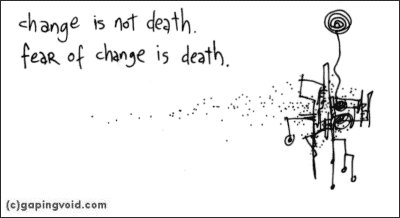Hi everyone.
I want to thank Marcel for the invitation to contribute to this very thought-provoking blog.
____________________
I have great difficulty in saying any sentence that begins "I am ..." (e.g. "I am a teacher"; "I am poor at mathematics"; "I am a Seventh-day Adventist") when it is about my identity. The reason is that the verb 'to be' and its variations (I am, you are, he/she/it is) have enormous potential to be totalising — to become the exclusively defining feature of our identity.
We can hear a similar aversion to this type of language when people who have a disability object to such language as "I am disabled" or "I am dyslexic". Frequently using this type of language about oneself can lead to becoming defined by the characteristic which is part of the phrase.
It is dangerous for others to use this language about another person. If I think of another person in terms of "she is disabled" or "she is aboriginal" we become tempted to stereotype the person and overlook other characteristics that richly define who they are.
It is an interesting exercise to deliberately change language like this about ourselves and others. Changing our language can change our perspective. Consider these examples:
I am a teacher --> One of the things that I do is teach
I am a bad speller --> There are some words I find difficult to spell
I am disabled --> There are some things I am not able to do
I am Australian --> I was born and raised in Australia
Stereotyping is a well known temptation for all of us. We tend to make quick judgments based on one characteristic of a person that becomes the box into which we force them. Deliberately avoiding the verb "to be" when talking about ourselves or others can liberate us from narrow views.
I sometimes wonder whether God was preventing us, as humans, from falling into the same trap when God answered Moses' question about God's name:
13 Then Moses said to God, “If I come to the people of Israel and say to them, ‘The God of your fathers has sent me to you,’ and they ask me, ‘What is his name?’ what shall I say to them?” 14 God said to Moses, “I am who I am.” And he said, “Say this to the people of Israel, ‘I am has sent me to you.’” 15 God also said to Moses, “Say this to the people of Israel, ‘The Lord, the God of your fathers, the God of Abraham, the God of Isaac, and the God of Jacob, has sent me to you.’ This is my name forever, and thus I am to be remembered throughout all generations. Exodus 3:13-15
(ESV)
God resists saying, "I am ..." and filling in the phrase with something specific. God just says, "I am who I am. You can't define me. You can't squeeze me into a box of your own making. You can't pin me down." God is willing to identify Godself as the same God that communicated with Israel's "fathers" — Abraham, Isaac, and Jacob.
Clearly, we do not come anywhere near any equivalence with God. But, as humans made in the image of God, defining ourselves with any sort of categorical box is simplistic, reductionistic, and totalising. I challenge everyone to practice the discipline of avoiding the verb "to be" when talking about self-identity and, instead, celebrate the richness of each one of us that makes it impossible to put us into any box.
 A couple of things have happened in the last few weeks that inspired me to begin this series on relevance. This will be the concluding post - but you may find this theme throughout much of what I write (both in the past, and in the future). When I preach, when I write, when I do just about anything, I ask myself, what is the point? And this becomes the question I have to ask about God, His Word, and His Church - what is the point?
A couple of things have happened in the last few weeks that inspired me to begin this series on relevance. This will be the concluding post - but you may find this theme throughout much of what I write (both in the past, and in the future). When I preach, when I write, when I do just about anything, I ask myself, what is the point? And this becomes the question I have to ask about God, His Word, and His Church - what is the point?









